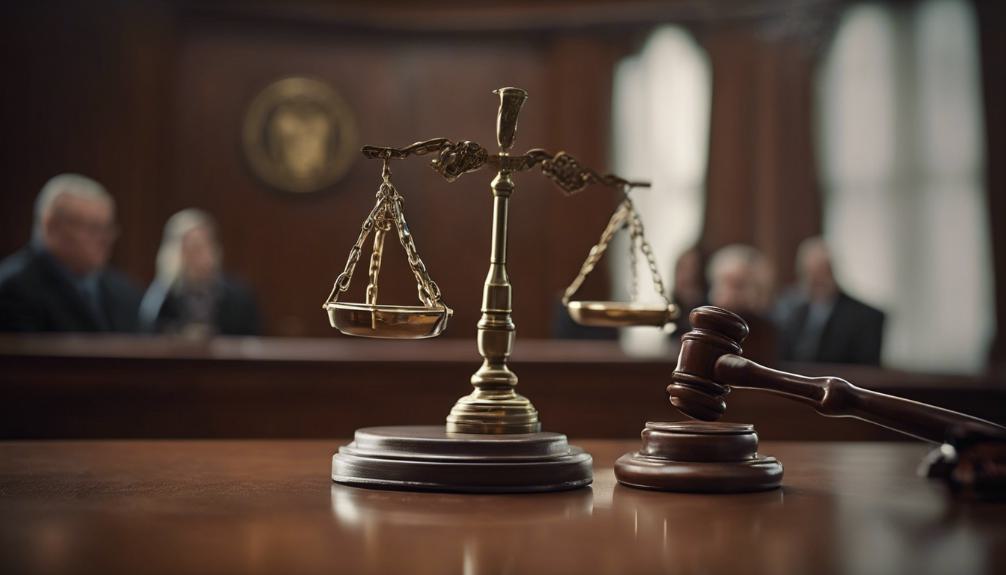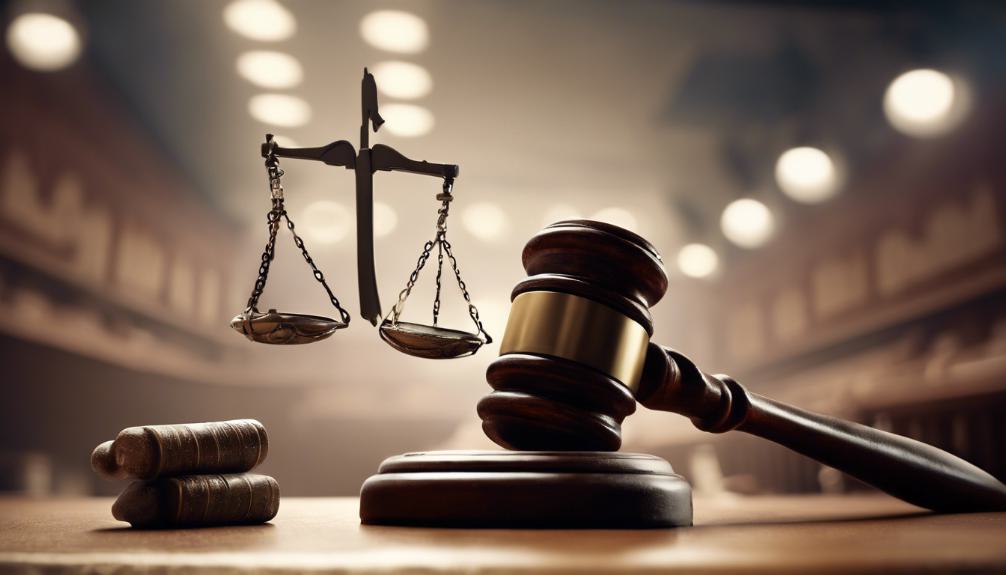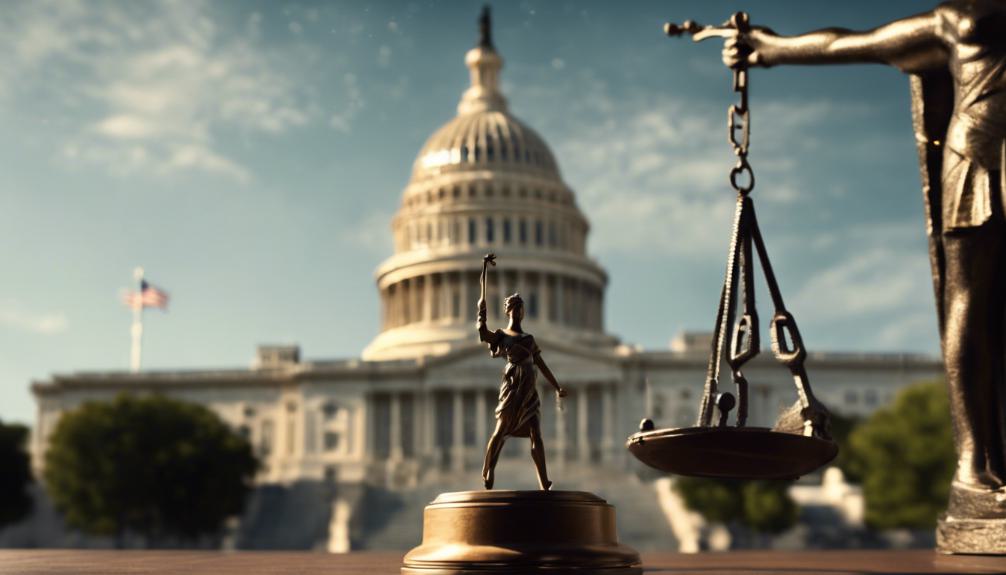Sex Trafficking Lawyers: How Survivors Can Pursue Justice
Survivors of sex trafficking have the right to pursue justice through the civil and criminal justice systems, supported by knowledgeable legal representation specializing in sex trafficking cases. This essential legal support not only holds perpetrators accountable but also aids in protecting survivors from prosecution for crimes they were forced to commit under duress. By leveraging both state and federal laws designed to strengthen survivors' legal standing, attorneys can guide survivors through the complex process of filing personal lawsuits for restitution and compensation. Moreover, recent legislation empowers survivors further, recognizing the importance of financial compensation in the journey toward healing. Understanding the depth of available legal avenues and legislation can have a significant impact on a survivor's quest for justice and healing.

Legal Representation for Survivors

For survivors of sex trafficking, securing knowledgeable legal representation is a vital step towards achieving justice and reclaiming their rights. Attorneys specializing in sex trafficking cases understand the intricate legal landscape that survivors navigate. They provide essential support by representing victims in civil litigation, offering a pathway to hold perpetrators accountable outside the criminal justice system. This legal support not only protects survivors' rights but also empowers them to demand change. A dedicated legal team actively pursues justice for survivors, working tirelessly to prevent their prosecution for crimes they were forced into. Legal representation is indispensable in combating retaliation and ensuring survivors are not punished for being victims of serious crimes. Through skilled advocacy, survivors can begin the process of healing and reclaiming their dignity.
Understanding Survivors Rights

Survivors of sex trafficking possess significant legal rights that offer protection and avenues for justice within both the criminal and civil justice systems. These rights are enshrined in various state and federal laws, designed to shield survivors from further harm while providing mechanisms for redress and compensation. For instance, legislation such as the Pennsylvania Anti-Human Trafficking Law and federal acts like FOSTA and SESTA have strengthened survivors' legal standing, enabling them to hold traffickers and complicit entities accountable. Additionally, affirmative defenses in prostitution cases acknowledge the victimization inherent in trafficking scenarios, ensuring that survivors are not unjustly penalized for their coerced actions. Through such legal frameworks, survivors are empowered to seek justice and begin the process of healing and recovery.
Civil Vs. Criminal Justice

Understanding the differences between the civil and criminal justice systems is pivotal for sex trafficking survivors seeking legal redress and compensation. The criminal justice system addresses crimes against the state, with the primary goal being punishment of the perpetrator. Convictions can result in imprisonment or other penalties, but they do not directly offer financial compensation to the victim. In contrast, the civil justice system allows survivors to file personal lawsuits against their traffickers or others who enabled their exploitation. This route can lead to financial restitution, covering damages for physical and emotional harm, loss of income, and medical expenses. While both systems serve distinct roles, utilizing the civil justice system offers a path for survivors to achieve financial compensation and a sense of personal justice.
Key Legislation Impact

Recent legislative developments have profoundly influenced the legal landscape for sex trafficking victims, offering new avenues for justice and accountability. The introduction of groundbreaking laws, such as Pennsylvania's Anti-Human Trafficking Law, empowers survivors by providing mechanisms to hold traffickers directly accountable. These legislative efforts expand the rights of victims, enabling more robust civil actions outside the traditional confines of the criminal justice system. Moreover, the affirmation of survivors' ability to pursue civil litigation marks a significant shift towards recognizing the deep-rooted impacts of trafficking. By fostering an environment where survivors can seek restitution and damages, the law acknowledges the importance of financial compensation in the healing process. This legislative progress underscores the essential role of legal frameworks in combatting sex trafficking and supporting survivors.
Navigating FOSTA-SESTA Challenges

The enactment of FOSTA-SESTA legislation in 2018 has introduced complex challenges for both advocates and victims of sex trafficking, fundamentally altering the landscape of online liability and accountability. By amending the Communications Decency Act, these laws shift significant responsibility onto online platforms, holding them accountable for content that could facilitate sex trafficking. This legislative change has led to the shutdown or modification of websites, impacting both the visibility of trafficking activities and the means by which survivors and advocates can engage with these platforms for support and justice. The distinction—or lack thereof—between consensual sex work and sex trafficking under FOSTA-SESTA has sparked controversy, further complicating the efforts to protect survivors while also safeguarding free expression online.
The Role of Civil Litigation

Civil litigation serves as a pivotal mechanism for sex trafficking survivors seeking justice and compensation for their suffering. Unlike the criminal justice system, which primarily aims to punish perpetrators, civil litigation focuses on the recovery and restitution of the victim. By filing a lawsuit, survivors can seek damages for the harm they've endured, which may include physical, psychological, and financial injuries. This legal pathway empowers survivors by giving them a direct role in holding traffickers accountable. Moreover, successful civil cases can also bring about public awareness and potentially drive systemic changes to prevent future trafficking. Experienced sex crime attorneys play an essential role in maneuvering these complex legal processes, ensuring survivors' rights are protected while aiming for the most favorable outcomes.
Online Platforms Accountability

In the wake of FOSTA-SESTA laws, online platforms face increased legal accountability for content that may facilitate sex trafficking. These legislative changes, amending the Communications Decency Act, mark a substantial shift in how the internet is policed. Prior to FOSTA-SESTA, Section 230 of the Act provided broad immunity to online service providers from being held liable for user-generated content. However, with the enactment of FOSTA-SESTA, this immunity is greatly curtailed, particularly in instances where online platforms may knowingly assist, facilitate, or support sex trafficking. This has led to notable changes in how platforms monitor and manage content, with some sites preemptively altering policies or shutting down sections to avoid potential legal repercussions. The legislation underscores a critical balance between internet freedom and the protection of vulnerable individuals from exploitation.
Empowering Through Legal Action

Building on the increased accountability of online platforms, empowering survivors through legal action offers a pathway to justice and healing beyond the constraints of criminal prosecution. Attorneys specializing in sex trafficking cases provide vital support, representing survivors in civil courts to seek accountability and compensation. This legal empowerment enables survivors to pursue justice on their own terms, allowing for financial restitution and the opportunity to spotlight the crimes committed against them. Importantly, civil justice offers an alternative when the criminal justice system falls short, ensuring survivors' rights are protected and their voices heard. By pursuing civil litigation, survivors not only challenge their victimizers but also contribute to broader social change, demanding accountability from those who have facilitated their exploitation.
Business Accountability in Trafficking

Holding businesses accountable for their role in facilitating sex trafficking represents a critical step in dismantling exploitation networks and ensuring justice for survivors. The legal framework allows for civil litigation against entities that either directly engage in or unintentionally support trafficking operations. This includes hotels, transportation services, and online platforms that may provide a venue for these illegal activities. The FOSTA-SESTA laws, amending the Communications Decency Act, mark a significant shift by removing the immunity previously afforded to online platforms, thereby holding them liable for facilitating sex trafficking. This legislation underscores the importance of due diligence by businesses to prevent their services from being exploited for trafficking. Successful lawsuits against businesses not only bring financial restitution to survivors but also serve as a powerful deterrent, promoting more responsible business practices to prevent trafficking.
Survivors Path to Compensation

Understanding the mechanisms for holding businesses accountable, it becomes equally important to explore how survivors of sex trafficking can navigate their way towards obtaining compensation. Through the civil justice system, survivors have the legal right to pursue financial restitution for the harm they've endured. This can include compensation for physical and psychological damage, lost earnings, and the cost of medical and therapeutic treatment. Experienced sex crime attorneys play a pivotal role in this process, offering guidance and representation to guarantee that survivors' rights are protected and that their cases are presented effectively. Engaging in civil litigation allows survivors to hold perpetrators directly accountable, offering a path to healing and justice that complements criminal proceedings. This approach empowers survivors, offering them a tangible means to rebuild their lives and pursue closure.
Preventing Victim Prosecution

To prevent the prosecution of victims, legal strategies focus on safeguarding the rights of sex trafficking survivors through the implementation of protective laws and legal defenses. Attorneys play a vital role in this process by representing survivors and leveraging legislation designed to protect them, such as affirmative defenses in prostitution cases for trafficked individuals. This legal approach guarantees that survivors are recognized as victims rather than perpetrators. States like Pennsylvania have enacted laws that empower sex trafficking survivors, providing a framework for other jurisdictions to follow. The goal is to create a legal environment where survivors are empowered to demand change and pursue justice without the fear of retaliation or prosecution, ensuring no victim is punished for the crimes committed against them.

This post has been generated by AI and was not reviewed by editors. This is Not legal advice. Please consult with an attorney.




